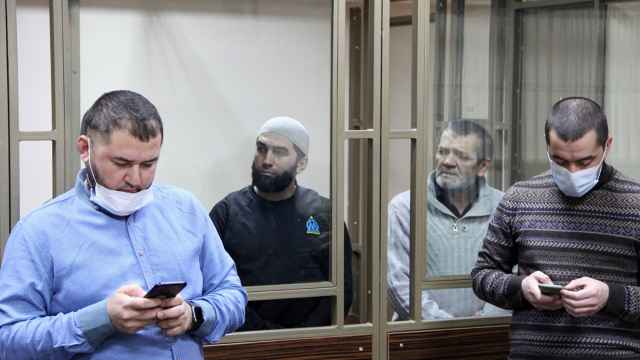Russia's Federal Security Service (FSB) has offered phone companies the use of its own wiretap systems to enforce the country's new anti-terrorism legislation.
The equipment, which is already installed with telecom operators throughout Russia, is better known by its Russian acronym SORM (Operative-Search Activities System).
Russian officials have been tasked to report on the country's technological capability to enforce the new laws, which were signed by Russian President Vladimir Putin last month.
The legislation stipulates that Russian telecom operators and Internet providers must store all of their customers' traffic, including calls, letters, files, and conversations, for approximately six months as of July 1, 2018. Data relating to the time and date of the transmissions must be kept of on record for three years.
Officials were asked to inform President Vladimir Putin whether Russian manufacturers would be able to produce equipment needed to comply with a new law by Sept. 1.
The FSB currently uses SORM to continuously record the traffic of specific users and save it for up to 12 hours, one source explained. The FSB is currently proposing to expand the system, allowing it to record the traffic of all users and store it for months at a time.
Further changes would also be required. As the system currently only stores only data traffic, additional upgrades would be needed to record conversations.
Data retrieval also poses problems. SORM software is currently designed in a way which requires a user to scroll through all previous data in order to access a particular record. The new law requires so much information to be stored that this system would be completely impractical. A costly search and indexing system, developed from scratch, would also need to be incorporated into the equipment, another source said.
The cost of making these changes are likely to be passed straight to operators.
While the source declined to estimate the cost of the changes, the directors of Russia's four major communications companies — MTS, Megafon, Vympelcom, and Tele 2 — have already calculated that Russian operators would have to pay 2.2 trillion rubles to install and maintain traffic storage equipment.
SORM is a distributive system, said Andrei Soldatov, the founder of the security service information website Agentura.ru website. SORM'S hardware and software is located with operators – who bear all expenses – while intelligence agencies merely operate a control unit remotely. Soldatov is certain that SORM is already recording the full array of users’ data, including voice conversations and Internet traffic.
Officials have already discussed the possibility of using the existing SORM system for implementing the new anti-terror laws, said Senator Lyudmila Bokova. The existing system is not designed for recording and storing voice communications, and its capabilities must be expanded to record, identify, and group that information.
New technology is required, and the authorities would prefer it be Russian-made, she said.
The FSB has already licensed several firms to develop wiretapping technologies, including MFI Soft, TekhArgos, and Norsi-Trans. An MFI Soft representative declined to comment, while other firms could not be reached for comment.
Representatives of MTS, Vympelcom, and Megafon also declined to comment. A Rostelecom representative said only that the company was awaiting the announcement of government rules, regulations, and procedures for implementing the law.
A Message from The Moscow Times:
Dear readers,
We are facing unprecedented challenges. Russia's Prosecutor General's Office has designated The Moscow Times as an "undesirable" organization, criminalizing our work and putting our staff at risk of prosecution. This follows our earlier unjust labeling as a "foreign agent."
These actions are direct attempts to silence independent journalism in Russia. The authorities claim our work "discredits the decisions of the Russian leadership." We see things differently: we strive to provide accurate, unbiased reporting on Russia.
We, the journalists of The Moscow Times, refuse to be silenced. But to continue our work, we need your help.
Your support, no matter how small, makes a world of difference. If you can, please support us monthly starting from just $2. It's quick to set up, and every contribution makes a significant impact.
By supporting The Moscow Times, you're defending open, independent journalism in the face of repression. Thank you for standing with us.
Remind me later.





